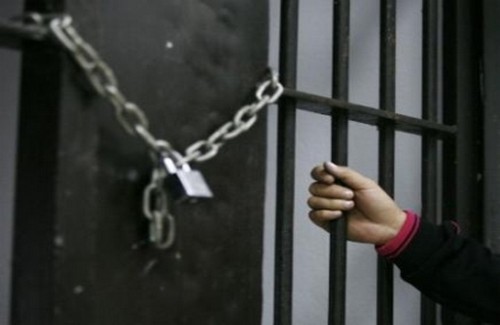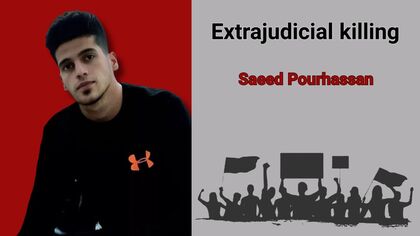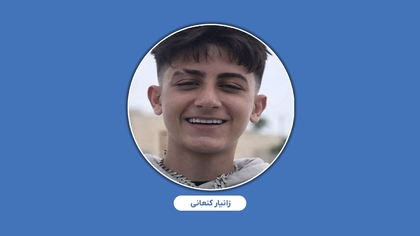Ahead of elections, Iran cracks down on press freedom
19:32 - 1 March 2012

KURDPA - The Iranian regime continued its persistent campaign against press freedom days ahead of its parliamentary elections on March 2 by sentencing two journalists to prison and periodically blocking millions of users from accessing the Internet, according to news reports. In addition, two journalists are suffering from deteriorating health conditions in prison, news reports said.
\"Tehran denies its own citizens access to information, while silencing those who question or dissent,\" said Mohamed Abdel Dayem, CPJ\'s Middle East and North Africa program coordinator. \"That the government\'s repression is intensifying before an election underscores its disregard for the basic rights of its people.\"
On Saturday, Kouhyar Goudarzi, who writes for the Committee of Human Rights Reporters (CHRR), was given a six-year prison term on charges of \"propagating against the regime\" and \"assembly and collusion against the regime,\" CHRR reported. Several CHHR journalists have been detained since 2009 in connection with their reporting on human rights abuses, CPJ research shows. Goudarzi was arrested in August 2011 and held in solitary confinement in Evin Prison in Tehran, the capital, for more than 60 days, CHHR reported. He had previously been arrested in December 2009 and served a one-year sentence on similar charges, CPJ research shows. His mother, Parvin Mokhtare, who was also arrested in August, is serving a one-year prison term in Kerman Prison for interviewing with international media during her son\'s previous imprisonment, news reports said.
On February 20, a Tehran Revolutionary Court sentenced Mahsa Amrabadi, a reporter for several reformist publications, to one year in prison and a four-year suspended prison term on charges of \"assembly and collusion against national security,\" news reports said. She was arrested in February 2011 and released on bail, according to news reports. Amrabadi was previously sentenced to a one-year prison term in October 2010 on antistate charges related to \"interviews and journalistic reports,\" but has not yet served the sentence, CPJ research shows. Her husband, Massoud Bastani, who is also a journalist, is serving a six-year prison term inside Rajaee Shahr Prison, CPJ research shows.
The Iranian regime has periodically blocked Internet access to more than 30 million users since February 10, according to news reports. Iranian users have been unable to consistently access Google services such as Gmail, Google videos, and YouTube along with other email services, news reports said. On February 20, Iran\'s Communications and Technology Minister Reza Taghipour announced that Iran would be launching a \"national Internet\" in the spring, which would essentially block Internet users in the country from large parts of the Web such as Google, Facebook, and Twitter, news reports said.
Two journalists are suffering from deteriorating health conditions in prison. Mehdi Khazali, an online journalist who was sentenced earlier this month to 14 years in prison, 10 years in exile, and 90 lashes, suffered a heart attack in Evin Prison while waging a hunger strike and was taken to a Tehran hospital on February 18, according to news reports. He was transferred back to Evin Prison on Tuesday, news reports said. Issa Saharkhiz, a journalist imprisoned since July 2009, was transferred to a hospital on February 17 after his heart condition deteriorated, news reports said. CPJ was unable to obtain further information on whether Saharkhiz had returned to prison or was still in the hospital.
Iran has maintained a revolving-door policy for imprisoning journalists, freeing some detainees on furloughs even as they make new arrests. This latest string of anti-press attacks comes amid 10 new arrests of journalists in January documented by CPJ. When CPJ conducted its annual prison census on December 1, Iran was holding 42 journalists in custody, the most in the world.
\"Tehran denies its own citizens access to information, while silencing those who question or dissent,\" said Mohamed Abdel Dayem, CPJ\'s Middle East and North Africa program coordinator. \"That the government\'s repression is intensifying before an election underscores its disregard for the basic rights of its people.\"
On Saturday, Kouhyar Goudarzi, who writes for the Committee of Human Rights Reporters (CHRR), was given a six-year prison term on charges of \"propagating against the regime\" and \"assembly and collusion against the regime,\" CHRR reported. Several CHHR journalists have been detained since 2009 in connection with their reporting on human rights abuses, CPJ research shows. Goudarzi was arrested in August 2011 and held in solitary confinement in Evin Prison in Tehran, the capital, for more than 60 days, CHHR reported. He had previously been arrested in December 2009 and served a one-year sentence on similar charges, CPJ research shows. His mother, Parvin Mokhtare, who was also arrested in August, is serving a one-year prison term in Kerman Prison for interviewing with international media during her son\'s previous imprisonment, news reports said.
On February 20, a Tehran Revolutionary Court sentenced Mahsa Amrabadi, a reporter for several reformist publications, to one year in prison and a four-year suspended prison term on charges of \"assembly and collusion against national security,\" news reports said. She was arrested in February 2011 and released on bail, according to news reports. Amrabadi was previously sentenced to a one-year prison term in October 2010 on antistate charges related to \"interviews and journalistic reports,\" but has not yet served the sentence, CPJ research shows. Her husband, Massoud Bastani, who is also a journalist, is serving a six-year prison term inside Rajaee Shahr Prison, CPJ research shows.
The Iranian regime has periodically blocked Internet access to more than 30 million users since February 10, according to news reports. Iranian users have been unable to consistently access Google services such as Gmail, Google videos, and YouTube along with other email services, news reports said. On February 20, Iran\'s Communications and Technology Minister Reza Taghipour announced that Iran would be launching a \"national Internet\" in the spring, which would essentially block Internet users in the country from large parts of the Web such as Google, Facebook, and Twitter, news reports said.
Two journalists are suffering from deteriorating health conditions in prison. Mehdi Khazali, an online journalist who was sentenced earlier this month to 14 years in prison, 10 years in exile, and 90 lashes, suffered a heart attack in Evin Prison while waging a hunger strike and was taken to a Tehran hospital on February 18, according to news reports. He was transferred back to Evin Prison on Tuesday, news reports said. Issa Saharkhiz, a journalist imprisoned since July 2009, was transferred to a hospital on February 17 after his heart condition deteriorated, news reports said. CPJ was unable to obtain further information on whether Saharkhiz had returned to prison or was still in the hospital.
Iran has maintained a revolving-door policy for imprisoning journalists, freeing some detainees on furloughs even as they make new arrests. This latest string of anti-press attacks comes amid 10 new arrests of journalists in January documented by CPJ. When CPJ conducted its annual prison census on December 1, Iran was holding 42 journalists in custody, the most in the world.



